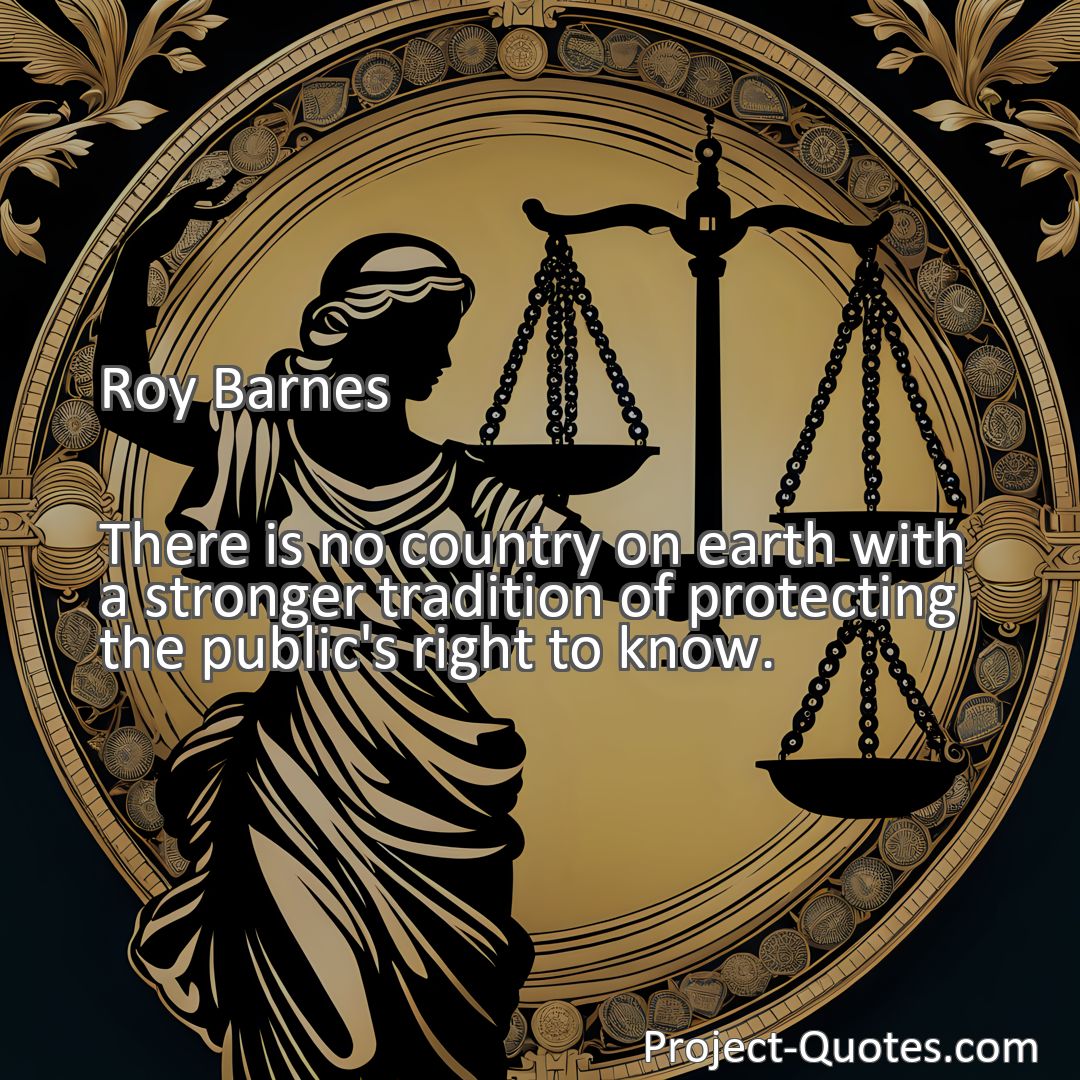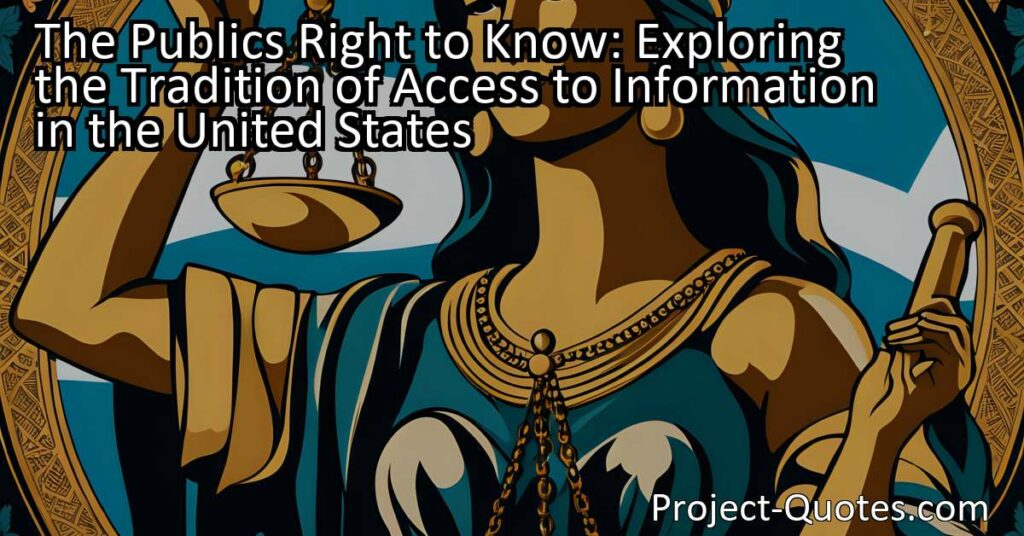There is no country on earth with a stronger tradition of protecting the public’s right to know.
Roy Barnes
The United States prioritizes the public’s right to know by providing information whenever necessary. Through a strong legal framework, a diverse media landscape, and a culture of transparency, the U.S. ensures that citizens have access to accurate and reliable information, empowering them to actively participate in shaping the future of their country.
Table of Contents
Meaning of Quote – There is no country on earth with a stronger tradition of protecting the public’s right to know.
In today’s digital age, access to information has become an integral part of our lives. We rely on constant access to news, updates, and knowledge to stay informed, make educated decisions, and participate in our democracy. However, it is important to recognize and appreciate the significance of a country’s commitment to protecting the public’s right to know. Roy Barnes, the author of the quote, positively highlights the exceptional tradition that exists in a specific country, which prioritizes ensuring that its citizens have access to information.
When we think about countries that prioritize the public’s right to know, one nation stands out among the rest: the United States of America. The U.S. has a long-standing tradition of upholding the principles of freedom of speech and press, which are enshrined in the First Amendment of its Constitution. This amendment guarantees the right to express oneself freely and prohibits any law that would abridge the freedom of the press. It is this commitment to protecting the public’s right to know that has made the U.S. a trailblazer in ensuring transparent and accountable governance.
One of the key elements that contribute to the U.S.’s strong tradition of protecting the public’s right to know is its robust system of media outlets and organizations. In the U.S., there is a diverse and competitive media landscape that keeps the general public well-informed. From print newspapers to television news networks to online news platforms, Americans have access to a wide range of sources that strive to provide accurate and reliable information. This multiplicity of news sources helps to ensure that no single entity has complete control over the dissemination of information, fostering a healthy democracy where the public is continually informed and engaged.
Another factor that reinforces the U.S.’s tradition of protecting the public’s right to know is the legal framework in place to safeguard this fundamental freedom. The Freedom of Information Act (FOIA), passed in 1966, plays a crucial role in granting public access to government records. Under this act, anyone can request information from federal agencies, and those agencies are required to disclose the requested information unless it falls under one of several specified exemptions. The FOIA acts as a powerful tool for citizens to hold their government accountable and ensure transparency, reinforcing the importance of the public’s right to know.
However, it is essential to acknowledge that the right to know is not infallible in the U.S. While the U.S. may have a strong tradition of protecting this right, there have been instances where it was challenged or limited. National security concerns, for example, have sometimes led to the classification of certain information, protecting it from public disclosure. The balance between national security and the public’s right to know is a delicate one, and the U.S. government strives to strike it appropriately through a careful evaluation of the potential risks and benefits.
The public’s right to know is not limited to government affairs alone. Journalists and reporters play a critical role in fulfilling this right by investigating and reporting on various issues, acting as the watchdogs of society. Their dedication to uncovering the truth and holding those in power accountable helps to ensure that the information flows freely to the public. This importance is recognized and protected by laws such as shield laws, which safeguard journalists from being compelled to disclose their sources or unpublished materials. These laws further reinforce the commitment to transparent communication and the vital role that journalists play in a democracy.
Beyond the legal framework, a culture of transparency and openness helps support the tradition of protecting the public’s right to know in the U.S. Government officials are expected to be accountable to the public and provide information whenever necessary. Press briefings, public hearings, and the disclosure of documents and reports all contribute to fostering a culture that promotes access to information. There is an understanding that transparency is essential for building trust, and without it, citizens’ confidence in their government could wane.
Furthermore, advancements in technology have had a profound impact on the public’s right to know. The internet, social media, and digital platforms have democratized access to information in ways never seen before. Citizens are now able to access news and information from around the world with just a few clicks. However, with this increased accessibility comes the need for media literacy and critical thinking skills. It is crucial to distinguish between reliable sources and misinformation, to ensure that the information we consume is accurate and factual.
In conclusion, Roy Barnes’s quote about the tradition of protecting the public’s right to know shines a light on the exceptional commitment that exists in the United States. Through a combination of legal protections, a robust media landscape, a culture of transparency, and advancements in technology, the U.S. has created an environment where access to information is paramount. While no country is perfect, the dedication to upholding the public’s right to know is a cornerstone of American democracy, ensuring an informed citizenry that is equipped to actively participate in shaping its future.
I hope this quote inspired image brings you hope and peace. Share it with someone who needs it today!


